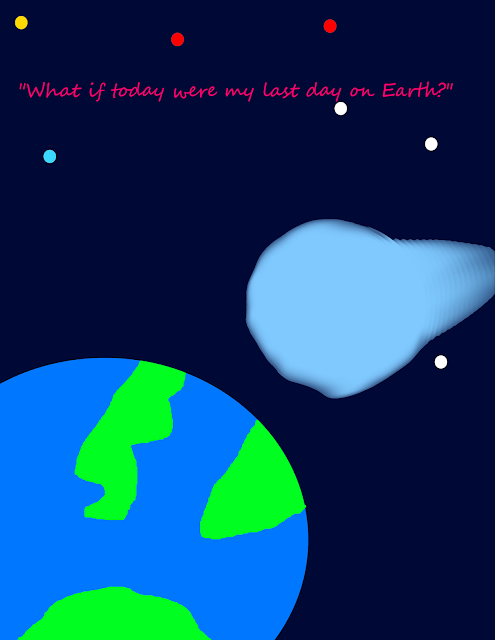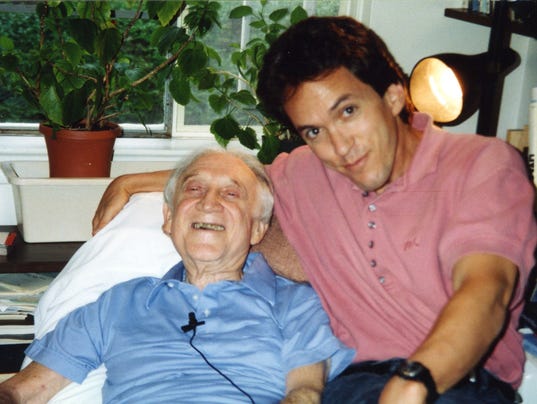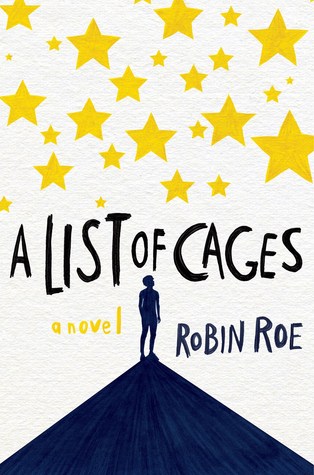1- What are the three most important things you learned this year?
1. Normal 8th grade ELA is equivalent to Accelerated 7th grade ELA, which means the accelerated classes are set one year ahead of grade level at minimum. This means that the 7th graders are two years ahead/extremely smart. Great job, guys.
2. Mrs. Larson has a grand plan each year, and it actually works really well. Just look at this year. TKAM leads to a discussion about injustice, which leads into Night, which leads into a discussion about the value of life, which leads into Tuesdays with Morrie. You end up learning way more things on the side of your actual task than you would if it was disconnected. As for what I learned from that: All stories flow together, whether real or false, and life has so many different values that no one interpretation *glares at organized religion* of how to live one's life is the "true" way. They're all correct.
3. Life is basically story glue: all stories involve a change in it.
2. Mrs. Larson has a grand plan each year, and it actually works really well. Just look at this year. TKAM leads to a discussion about injustice, which leads into Night, which leads into a discussion about the value of life, which leads into Tuesdays with Morrie. You end up learning way more things on the side of your actual task than you would if it was disconnected. As for what I learned from that: All stories flow together, whether real or false, and life has so many different values that no one interpretation *glares at organized religion* of how to live one's life is the "true" way. They're all correct.
3. Life is basically story glue: all stories involve a change in it.
2- What is something we did this year that you think you will remember for the rest of your life?
The Southern Sampler. It was the most clever creation Mrs. Larson ever thought of: A Christmas feast linked directly to the book we were reading, and on top of it all...she gets to eat the junk food we brought in...clever. (Mrs. Larson, you play the long game better than Emperor Palpatine, and for that, I applaud you. *clapclapclapclapclapclapclapclapclapclapclapclap*)
3- What was the nicest thing someone in our class did for you this year?
Everyone who helped me with things...which was basically everyone. Thank you very much. I couldn't have done all the crazy stuff I did without you guys.
4- What is something you taught your teacher or classmates this year?
I taught you all about minor details making a massive difference. I use this concept in my book theories, which I'm thinking of posting, but still unsure about.
5- In what area do you feel you made your biggest improvements? What is something you accomplished this year that you are proud of?
Managing homework, because before this year I went home piled high every night. This year my homework load was much the same, but I went home with little to none, daily. Something I've accomplished is my aphorism project, which took two image editors, a few hours of time, and a [redacted]-ton of printer ink. It's my best freestyle piece of art.
Managing homework, because before this year I went home piled high every night. This year my homework load was much the same, but I went home with little to none, daily. Something I've accomplished is my aphorism project, which took two image editors, a few hours of time, and a [redacted]-ton of printer ink. It's my best freestyle piece of art.
6- What was the most challenging part of this year for you?
My recent speech, due to the time constraints, nerves, and my dislike of public speaking. However, I apparently did pretty good, which makes all of that craziness worth it.
7- What was the best piece of writing that you did this year? Why do you think it is your best?
My "This I Believe" speech because it's written in my voice, rather than my writer's voice, which is far more formal and, frankly, easier to write in.
8- Of the books you read this year, which was your favorite? Why?
Dead of Night and Fall of Night, because of zombies, a conspiracy involving the author's other works, a HUGE connection to the series that gave me my Jonathan Maberry fan-status (which is actually linked into the conspiracy) and, of course, excellent writing.
9- What advice would you give students who will be in this class next year?
The most important piece of advice I'd want to give is as follows: Stay on top of your assignments. Many a seventh grader has fell prey to the sixth grade strategy: procrastinate until you can't, then crank out the assignment. "Until you can't," by the way, tends to be the day before it's due. This never works.
Another thing that doesn't work: counting on grace time for being sick, because Edmodo exists. Other than those two things *insert warning about the massive workload increase here*, you're good.
[image won't render :(]






